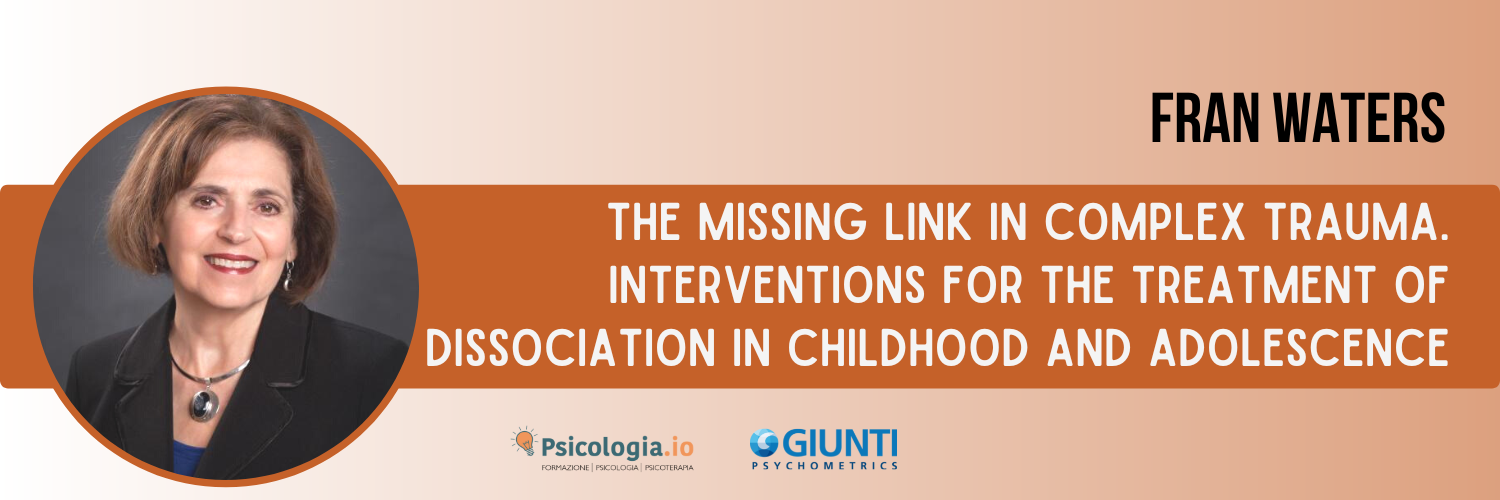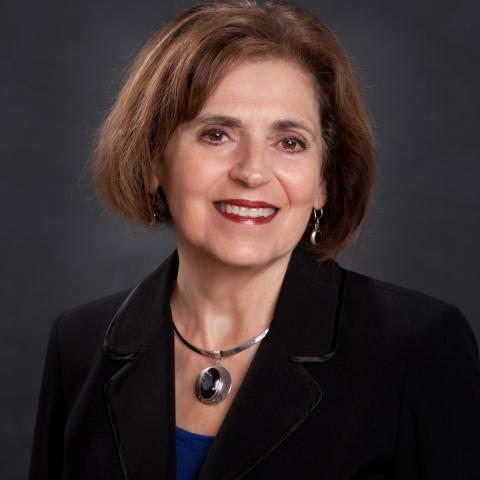
The missing link in complex trauma
Interventions for the treatment of dissociation in childhood and adolescence
Module 1: An Integrative Model. Star Theoretical Model for Assessing & Treating Children with Dissociation
Assessing traumatized children with dissociation is a complex process that crosses over many theoretical domains for comprehensive evaluation and treatment. There are multiple dynamics and variables that contribute to the development of childhood dissociation. Because there are many pathways that influence the development and reliance on dissociation, one theory is inadequate.
This workshop will describe an integrative model, the Star Theoretical Model for Assessing and Treating Children with Dissociation, Waters, F. S. 2016, for evaluating youth with dissociation. Five theoretical constructs comprise this model-attachment, child development, neurobiology, dissociation, and family systems. Each construct will be described to illuminate specific pathways to the development of childhood dissociation. Significantly, it is the combination of all 5 theories that provides a comprehensive guide to assessing the development of childhood dissociation and a guide for effective intervention. Case examples of dissociative children will be illustrated to show how each of these theories linked together in the Star Theoretical Model to provide a careful assessment.
Module 2: The Missing Link in Complex Trauma: Comprehensive Assessment Process for Diagnosing Childhood Dissociation
Children with complex trauma often present with a plethora of disturbing symptoms, and consequently receive multiple diagnoses, a cocktail of medications, and numerous treatment episodes, but the symptoms persist. Consequently, these children experience repeated failed placements, including foster and adoptive, residential and hospitalizations. With each failed placement and treatment episodes, the traumatized child experiences more despondency and anger for being misunderstood. Frequently, the missing link to successful treatment with children of complex trauma is due to the lack of recognizing children’s dissociative symptoms that profoundly impact their mood, behavior, identity, cognition, memory, sensations, and attachments.
This part two training will provide a comprehensive assessment process for children with complex trauma and dissociation. Core signs of dissociation and differential diagnoses, i.e. attention hyperactivity disorder, psychosis, disruptive mood dysregulated disorder, will be discussed so that accurate diagnosis for dissociation can occur. Participants will learn how to differentially diagnose more commonly known diagnoses from those symptoms that are a constellation of a dissociative disorders. Dissociative checklists will be presented, including the newly developed comprehensive caretaker and youth versions of Checklist of Indicators of Trauma and Dissociation in Youth, CIT-DY (Waters, 2020) that is a comprehensive assessment tool that elicits information regarding history of placements, treatments, trauma histories and dissociative symptoms. Throughout this training, clinical examples, and poignant questions to ask these traumatized children and their caretakers about dissociative symptoms will be presented to arrive at an accurate diagnosis. Children’s depictions about their dissociative states, along with their artwork, will provide a window into children’s inner world to begin the healing process.
WHAT'S INCLUDED
- 8 training hours
- Video lessons in original language
- Slides
Program
Unit
1
An Integrative Model. Star Theoretical Model for Assessing & Treating Children with Dissociation
-
Speaker
Durata Modulo
4h 00m
Unit
2
The Missing Link in Complex Trauma: Comprehensive Assessment Process for Diagnosing Childhood Dissociation
-
Speaker
Durata Modulo
4h 00m
Teachers

Fran Waters
Psychology
Frances S. Waters, DCSW, LMSW, LMFT, is an internationally recognized trainer, consultant, and clinician in childhood trauma, abuse, and dissociation, and has presented extensively in 5 continents.
Ms. Waters is author of Healing the Fracture Child: Diagnosing and Treating Dissociative Youth (2016… continua
On Demand
DURATION
8h 00m
MATERIALS
- Recordings available for 12 months from purchase
- All materials are downloadable
Subscribing you will be able to
Watch or rewatch the deferred event when you want: it will stay in your private area for 12 months
Download the certificate of attendance
SUBSCRIPTIONS
NON DISPONIBILE
Furthermore, you will have access to:
Certificate of attendance